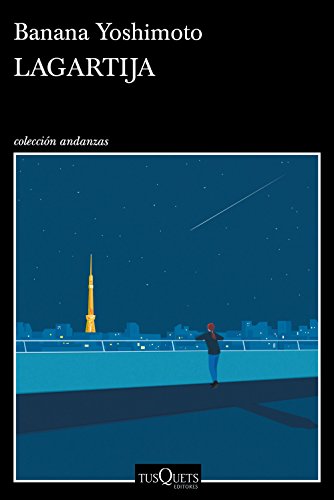In general, synthesis is always productive, valuable, and generating new enriching approaches. In literature, the ability to appreciate very different perspectives to end up feeding on them all, ensures a more fertile creative field, without restrictions of genres or labels.
And that's what happens with Banana yoshimoto or Mahoko Yoshimoto (if we stick to the author behind the pseudonym). Because this Japanese author has been influenced, in that previous imaginary necessary for every writer, by writers as far away as Truman Capote o Stephen King.
Probably, the unique mix converges in one of the most notable aspects of this author: the dialogues. Knowing how to convey much more than just a conversation is not an easy task, it is probably the most difficult thing for a writer.
Making the characters speak and having them be the ones in charge of awakening emotions or transmitting sensations can only be done through the writer's empathic capacity, that ease of getting under the skin of the character he or she plays. If we add to this the learning of how other greats like Capote did it with his conversations of extraordinary sensitivity between gray settings and King with his gift to make any character close, no matter how rugged or strange.
So I recommend reading the yoshimoto books It ends up being a recommendation about characters that exude truth, and that alone for that reason could win you over to their cause. But if, in addition, the narrative tension makes even the most existential story advance like a living rhythm, it can be said that the author ends up composing interesting novels that we savor with pleasure. Current stories that raise debate about the lifestyle of the XNUMXst century, with its contradictions, its temptations and an intense feeling of loneliness as the only companion with which to face everything.
Top 3 recommended books by Banana Yoshimoto
Lizard
Yes, a short story book like the first on my list. I have my reasons. And it is that if before I pondered the quality to paint unforgettable characters, nothing better than the power of the brief to show that sum of characters exposed to connected experiences about an urban and magical existentialism.
A monstrous city like Tokyo can host soul mates. A sunset between the first lights of the big city can be the excuse to intertwine existence with the thread of the peremptory nature of life, of longing and of the final hope between a common sunset of melancholy.
Banana Yosimoto opens the doors to the Japanese spirituality of the everyday. It presents us with a set of stories with which to soak up the Japanese idiosyncrasy in its most intimate part.
And yet, the feeling of life ends up being very similar here or there, even though the world built around it may be very different. The six protagonists who go through their corresponding six stories, start with a supposed intention of dissecting Japanese social groups into a kind of typical characters for different stripes.
But the final portrait of men and women, young and old, serves to erase all previous labeling. There is no ideological or moral intentionality, it is about discovering how equal we are when we explore our surrounding world, from within.
The only difference is the experiences that have guided us towards one or another way of acting. But the human being stripped of everything, is composed identically both of a large part of water, and of similar emotions.
We stop loving in the same way at twenty as at seventy, we suffer losses with the same unease, we wake up with the same cellular need to survive, we get lost along the way with the same closed-mindedness. And everything, absolutely everything, ends up aimed at finding happiness on some occasion, no matter how ephemeral it may be. Yosimoto draws each character of this current Japan in his particular setting.
We decipher the ancestral tradition in some of them and discover the same globalization process in others. And we are still fascinated by the differences. But what is really fascinating is realizing that common feeling that governs us all, from the land of the rising sun to the other side of the world.
Kitchen
Yoshimoto achieved great recognition with this, his first work. It was probably a matter of the emergence of the surrealist approach, of the existential metaphor that meant that a young woman decided to spend the rest of her life in the kitchen of her house, hidden from the world after being left alone on the planet.
In his Kafkaesque becoming, Mikage finally opens up to Yuichi and decides that he is another lost soul like him, and ends up deciding to go home to live, along with Yuichi's mother, who really only impersonates her maternal identity in order to maintain the unsustainable reality of abandonment and loneliness.
Between the three characters a space of estrangement is created but that, shared between them, ends up being even more reliable and true than everything else that may be outside.
Only beautiful things, extravagances, rarities can only maintain their beauty as long as they do not interact with the gray of the world where you no longer believe in anything to survive.
The lake
There is no doubt that the death of a loved one is a rewriting of one's life. Banana Yoshimoto writes about this idea in many of his books. But it is probably in this novel where the most tragic tone acquires the idea.
Because in the story there is a strange dance between death and love, like a tango between lovers who at times suffocate with desire and who later repudiate each other in their most stormy days.
The romance between the protagonists of this story dawns as something fragile, they do not surrender to the physical until their love well advanced, perhaps they are for each other their mutual book on which to write the new life after death….




Excellent introduction to Yoshimoto, very much in keeping with your selection. I am fascinated by this page, it is a pleasure to read your articles !!!